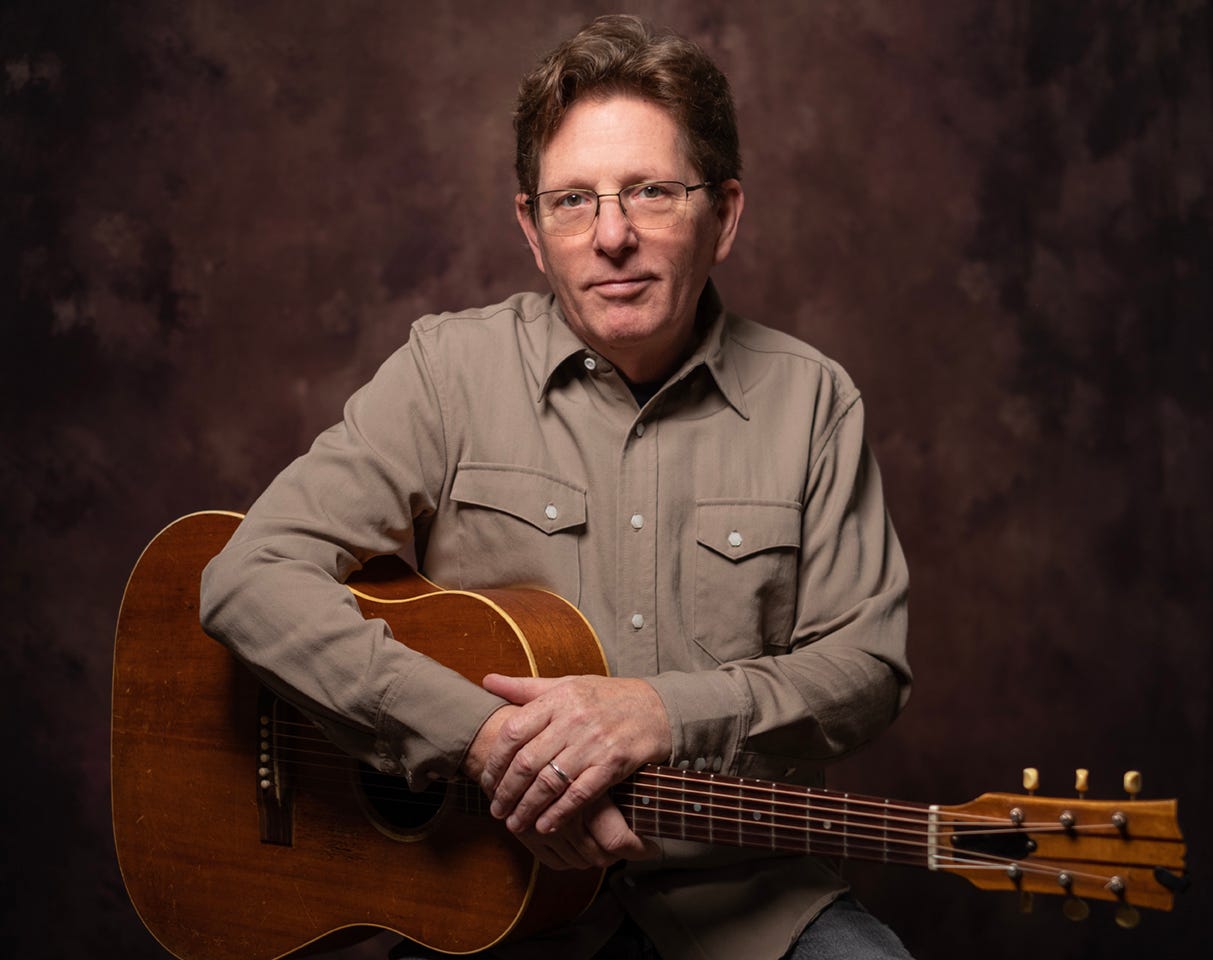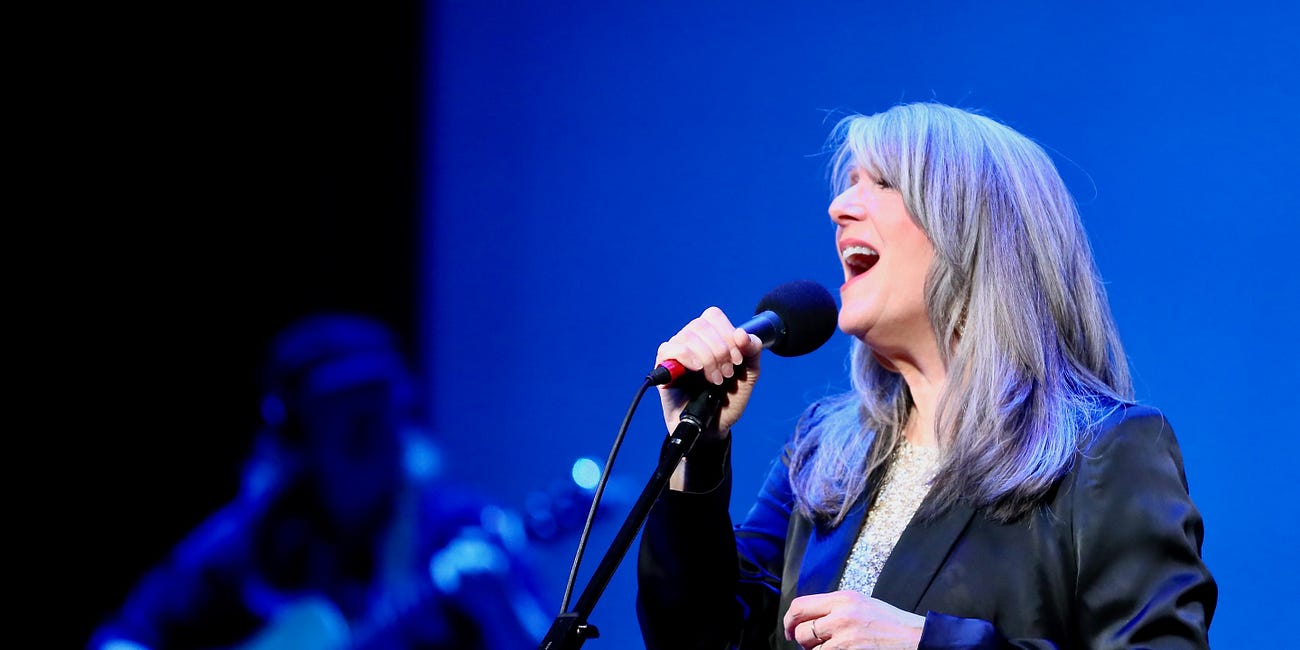Conversations: Tim O'Brien
Country and bluegrass icon discusses his ties to Mountain Stage
For Tim O’Brien, performing on Mountain Stage is a homecoming. The Grammy Award winning country and bluegrass musician, songwriter, and in-demand session player has played on the National Public Radio show more than any artist over the past 40 years.
“I've got a cycle of writing songs, recording them, and then releasing them on a new project so I try to go there every time I have something new, which ends up being every year and a half, pretty much on the average,” O’Brien says. “Over the years, that adds up to a lot of shows.”
Like fellow Grammy winner Kathy Mattea, who became the second permanent host in the show’s four-decade history in 2021, O’Brien is a West Virginia native who has maintained deep ties to the state long after moving to Nashville. The 69-year-old musician has performed on the show since he was in his early 30s.
The story of how O’Brien, whose band Hot Rize was one of the top bluegrass groups of the 1980s and ‘90s, came to perform on Mountain Stage during its infancy is part of the show’s legend, says longtime producer Andy Ridenour.
“We had done a half dozen shows and we got a letter from this woman in Wheeling asking if we’d like to have her son on the show. It was Tim,” says Ridenour, who retired in 2011. “I called her and said, ‘Sure,’ never thinking it would happen with our budget.”
O’Brien’s mother gave Ridenour the number of her son’s agent and asked him to call. “It was the first time I had ever talked to an agent, and I said I had spoken with Mrs. O’Brien, and that she wanted me to see if I could get Hot Rize and maybe Tim and his sister (Mollie O’Brien) and her band to perform on our show,” Ridenour recalls. “I told him my budget was $500 plus lodging, and there was this long pause.”
Ridenour laughs. “The agent said, ‘For both bands?’ I told him, ‘Yes,’ and he said he would call me back. A few minutes later, he said they wanted to do it, and that’s how our relationship started.”
Recently, I had the opportunity to interview O’Brien by phone about his experience with the show and get his thoughts on its future. We also talked about his long working relationship with Mattea, with whom he had a top 10 duet (1990’s “The Battle Hymn of Love”).
Here are excerpts from the conversation, lightly edited for length and clarity.
Why do you enjoy playing on Mountain Stage?
O’Brien: It's a great outlet and they give you complete freedom to play what you want to play. I love going back to my home state, and it gives me a reason to go back when I oftentimes won't get another one. They're very supportive of me and whatever I've got going, I'm able to go and present it.
When I spoke to Andy Ridenour, he said Hot Rize’s appearance on the program at the 1985 Spoleto Festival in Charleston, S.C., was one of the main reasons Mountain Stage moved from a statewide program to a national broadcast.
O’Brien: They said if they could get Hot Rize and a few other groups like us to play that they could broadcast live nationwide on the NPR system. That helped them, and it also helped us. We were happy to do it.
It’s funny. It just started with my mother calling them. Every time we'd play there, my mom and dad would come down from Wheeling. My mom would make chocolate chip cookies and everybody would eat them all up. They would always remember my mom. My parents were friends of the show, and I was the benefactor. I got to just be there and play.
Interview: Kathy Mattea
Kathy Mattea is sitting outside the green room at the Culture Center Theater, working her way through a salad with grilled chicken as she talks about an experience that has changed her life. “At first I was like, ‘There's no way. There's no way I'm going to go host a radio show. I…
You’ve collaborated with Kathy off and on since the mid 1980s. I heard the two of you met on the show. Is that right?
O’Brien: When I met Kathy, I was aware of her music a little bit. There had been terrible floods in the state and we were gathering to play on the show. We were both guests and my sister and I were one of the artists booked and so was she. Anyway, we ended up collaborating that day.
Kathy ended up being the spokesperson for a big telethon for flood victims. It really boosted her profile in the state. Soon after that, she recorded one of my songs (“Walk the Way the Wind Blows”) that was her second top 10 single. She cut some other songs of mine and had another hit about two years later with one of them. She’s been a big booster of mine and has had a remarkable career.
We've collaborated since then several times, including a project I produced for her a couple of years ago. Anyway, I remained in a little bit more in the trenches playing bluegrass and folk music and never really cracked into the commercial country game other than as a songwriter. As a result, it was much more in my interest to play on Mountain Stage than her.
What do you think of her work as the show’s host, especially following someone like Larry Groce, who has been there since the beginning?
O’Brien: Larry is hard to follow, hard shoes to fill, big shoes. Larry, just by the virtue of built that thing from the ground up along with a couple of other folks, stands for a great deal in the state and nationally. That’s why somebody of Kathy's stature is needed to fill those shoes. Kathy’s the one who can do that. She’s just great.
What do you think the future holds for the show?
O’Brien: I think they're pretty firmly established. I think the enthusiasm is there. It was started by a certain crowd and many of them are still there but young people are coming on all the time. It seems like the succession is happening. They have a new hostess and they have a new sound guy (Patrick Stephens) and they've added some people to the band. I expect that it'll continue.
They will always feature the upcoming original musicians, the people who are coming up and have a new take on things. It could be traditional music, it could be pop music, it could be jazz whatever it is. They'll embrace it. They provide an outlet and these people with something to offer need an audience. It’s so remarkable — the stuff that they've put on there. They're always under the gun for funding but they seem to always land on their feet. I hope that and I expect that they will continue to find more solid ground to stand on as they go.
Second of a three-part series written for Americana Highways.


